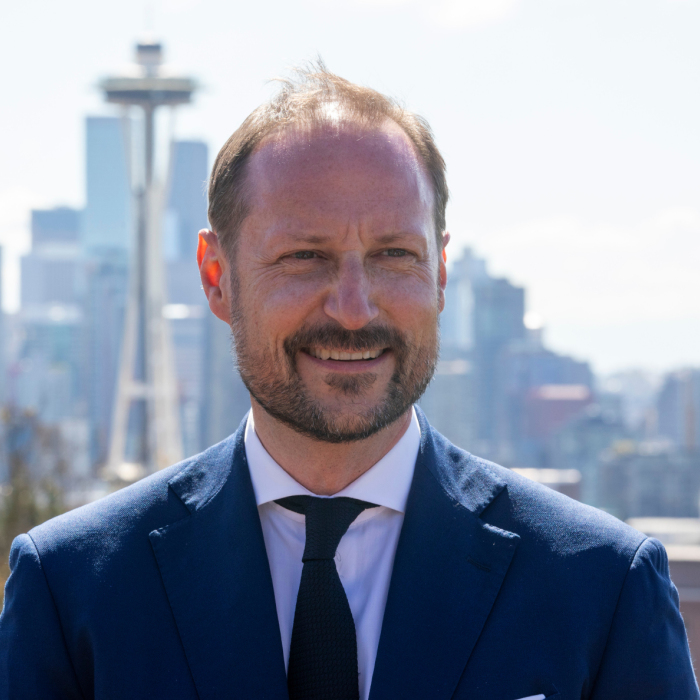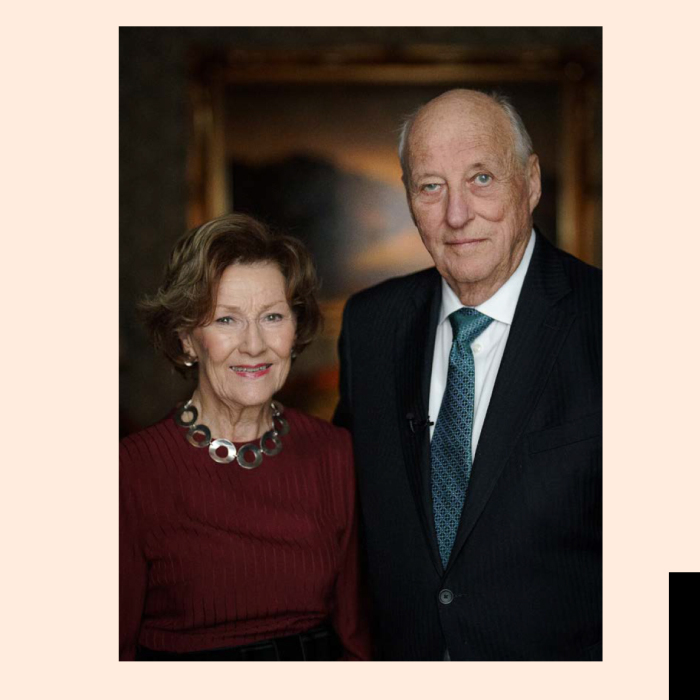"We owe him a debt of gratitude"
On Monday, King Harald, Queen Sonja, Crown Prince Haakon and Crown Princess Mette-Marit attended the commemoration of Fridtjof Nansen’s 150th birthday. A variety of cultural events and lectures were held in honour of the researcher, polar explorer, diplomat and Nobel Peace Prize laureate.
"Nansen believed that ordinary people could accomplish great things. He demonstrated this through his daring polar expeditions. He believed that the poor and the persecuted could live meaningful lives if the world opened the door to them. For all this, and more, each and every one of us owes him a debt of gratitude. Fridtjof Nansen makes us proud to be Norwegian. He makes it our duty to be citizens of the world."
These were the closing remarks of His Majesty The King during the commemoration of Fridtjof Nansen on Monday evening at University Square in Oslo. Other speakers included U.N. Secretary General Ban Ki-moon and Norwegian Prime Minister Jens Stoltenberg.
Musical performances were given by Madcon, Sissel Kyrkjebø and Thine Ting Helseth, and adventurers Vegard Ulvang and Stein P. Aasheim spoke of their forthcoming trip to the South Pole.
Nansen lectures in the University’s Aula
Prior to the cultural event, King Harald, Queen Sonja, Crown Prince Haakon and Crown Princess Mette-Marit were present in the University’s Aula to hear the lecture entitled “Environmental Change Over the Arctic: A Perspective Relative to Nansen’s Polar Exploration” delivered by the US researcher James Hurrell.
They were also present at the award of the Fram Committee’s Nansen Award for Polar Research, which this year went to Cecilie Mauritzen, a climate researcher at the Norwegian Meteorological Institute.
A life of greatness
Few people achieve so much and span so many fields as Fridtjof Nansen.
He held a doctorate in zoology, but he performed some of his most important work in oceanography and has been called the founder of modern deep ocean research. His polar expeditions were based on scientific objectives, and the research material gathered on the Fram expedition filled six volumes. His journey on skis across Greenland and through the Arctic Ocean on the polar vessel Fram brought Nansen world-wide attention.
As a diplomat, Fridtjof Nansen worked to achieve Norway’s independence. Since Norway and Sweden were not equal partners in the union between the two countries, Norway chose to dissolve the union and become an independent nation. Nansen’s esteemed position on the world stage was likely one reason that he was appointed to be Norway’s first ambassador to Great Britain.
Nansen was the first League of Nations High Commissioner for Refugees. He headed a massive effort to repatriate prisoners of war after World War I and established the “Nansen Passport”, which allowed stateless refugees to cross national borders. He was also actively involved in relief efforts in the newly established Soviet Union when famine struck in 1921.
Fridtjof Nansen was awarded the Nobel Peace Prize in 1922 for his humanitarian efforts.
Nansen and Norway’s new Royal Family
Nansen played a crucial role when Prince Carl of Denmark accepted the offer to become Norway’s monarch, as King Haakon. Nansen also served as the King’s assistant and friend when the King was getting settled in his new homeland. King Harald also mentioned Nansen’s importance in this regard in his speech on Monday. Both King Haakon and Crown Prince Olav attended the funeral of Fridtjof Nansen on 17 May 1930:
"Both my father and my grandfather were at Fridtjof Nansen’s graveside. King Haakon had lost his closest confidant in his new homeland, and Crown Prince Olav had also relied on the polar explorer as a key source of inspiration and adviser."
Gala banquet
On Monday evening, the King, Queen, Crown Prince and Crown Princess attended a gala banquet at Akershus Fortress in honour of Fridtjof Nansen.
Current news

The Crown Prince in the US
His Royal Highness Crown Prince Haakon concluded a four-day visit to the US Thursday. The visit went to the states of California and Washington, and several hundred Norwegian business actors accompanied him on the journey.

The Royal Court has submitted its annual report for 2023
The activities of the Royal House of Norway over the course of the year are closely aligned with the current situation in the country.

 Enlarge
Enlarge



